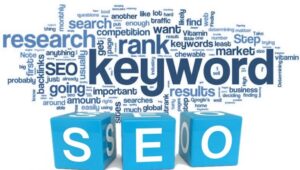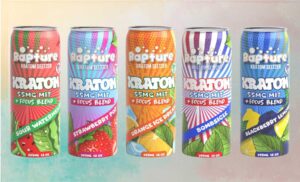
The digital marketing landscape has undergone a dramatic transformation in recent years, with artificial intelligence (AI) emerging as one of the most disruptive and powerful forces. For businesses and content marketers, AI is no longer a futuristic concept—it is now the foundation of next-generation content strategies that drive both higher search engine rankings and deeper user engagement.
In 2025, the most successful websites and digital brands aren’t just using content to inform—they are utilizing intelligent, data-driven systems to craft personalized, high-quality, and SEO-optimized experiences that keep users coming back. This evolution is particularly visible in how content is conceptualized, created, distributed, and optimized. AI has become a central enabler at every stage of this process, reshaping how brands approach content creation, from blog posts to landing pages and pillar content.
For companies seeking to navigate the new era of digital dominance, partnering with an experienced SEO agency is crucial. These agencies combine human creativity, data science, and technological expertise to create AI-augmented content strategies that not only align with search engine algorithms but also resonate authentically with target audiences.
How AI Is Changing the Content Strategy Paradigm
At its core, a content strategy is about delivering the right message to the right audience at the right time. Traditionally, this involved keyword research, editorial calendars, and performance analytics. But with AI, this process has become significantly more precise, efficient, and scalable.
AI enables marketers to tap into vast datasets to uncover hidden patterns in user behavior, search trends, competitor performance, and content gaps. This leads to the development of more targeted content strategies that are rooted in predictive analytics and semantic search understanding. Rather than just aiming for popular keywords, AI helps teams create content clusters around user intent, content depth, and contextual relevance—key ranking factors in today’s search engines.
Additionally, AI streamlines the ideation and research phase. By analyzing search queries, top-ranking content, and user questions across forums and social media, AI tools can suggest topics that are both highly relevant and underserved. This enables content teams to stay ahead of market demand, delivering fresh and engaging content that captures attention and ranks more quickly.
Moreover, AI does more than suggest what to write—it assists in how to write it. Natural language generation (NLG) models help writers by generating outlines, summaries, or full drafts based on input parameters. These drafts are not meant to replace human creativity, but rather to accelerate production and ensure that the final content is informed by data and aligned with SEO objectives.
AI and the Modern Content Lifecycle
To understand the impact of AI-powered content strategies, it’s important to explore how AI supports each stage of the content lifecycle—from planning and creation to optimization and performance tracking.
During the planning phase, AI tools can assess your current content inventory, identify underperforming assets, and recommend updates or re-optimizations. They can map your existing content to the buyer’s journey, identify duplicate topics, and suggest new pieces to close gaps. This kind of content intelligence ensures that every piece of content serves a specific strategic purpose.
In the creation phase, AI contributes by analyzing top-performing SERP results and extracting common themes, headings, and content structures. Tools like Clearscope, Surfer SEO, and MarketMuse provide real-time guidance on keyword usage, readability, content length, and semantically related topics. These platforms utilize AI to ensure that content is not only well-written but also has a higher likelihood of ranking.
Once content is published, AI takes on an optimization role. Machine learning algorithms track how users interact with content, monitoring metrics such as bounce rates, time on page, click-throughs, and scroll depth. These insights help determine whether the content is meeting its goals or needs refinement. AI also supports A/B testing, dynamically adjusting headlines, CTAs, or content order to boost engagement.
When supported by a professional SEO agency, AI-powered strategies evolve into a comprehensive, always-on content system—one that continuously learns from performance and adjusts to maximize impact.
Elevating SEO with Intelligent Content Creation
The relationship between content strategy and SEO is deeply intertwined. In the past, SEO often dictated the content creation process. Writers were given target keywords, and content was molded to fit them. This led to keyword stuffing, unnatural phrasing, and the creation of thin articles that were purely designed to appease search engines.
AI has turned that model on its head. Today, search engines are far more sophisticated. They understand semantic relationships, user intent, topical authority, and contextual relevance. This shift means content must be genuinely valuable, well-organized, and written for humans first, while still aligning with search engine signals.
AI helps strike this balance. By leveraging advanced natural language processing, AI tools understand how content should be structured to rank well and read naturally. They assist writers in incorporating keywords without compromising clarity. They ensure entities, headings, and schema markups are used correctly, aligning with modern Google ranking signals.
Furthermore, AI makes it easier to scale content production across a large website without sacrificing consistency. A single brand voice, tone, and structure can be maintained across dozens—or even hundreds—of content pieces. This is particularly useful for e-commerce platforms, news sites, or companies producing large volumes of educational content.
For businesses serious about competing in organic search, collaborating with a trusted SEO agency that utilizes AI tools is the most effective way to ensure content is not only optimized for search but also aligned with broader brand and conversion objectives.
Personalization and Engagement: The AI Advantage
One of the most profound ways AI is boosting content performance is through personalization. AI algorithms can track how individual users interact with content and tailor future experiences accordingly. In 2025, personalization is not a luxury—it’s an expectation. Visitors are far more likely to stay engaged when content speaks directly to their interests, needs, and stage in the journey.
AI enables content to be dynamically personalized based on user behavior, location, device, referral source, and even predicted intent. For example, a returning visitor might see updated product recommendations or blog posts that align with their past interests. A first-time visitor might see an educational video or an introductory article. These dynamic experiences lead to longer sessions, higher engagement, and ultimately better SEO rankings.
Interactive content like quizzes, calculators, and chat-driven content journeys is also AI-enhanced. These experiences offer value while collecting user data that fuels even deeper personalization in the future. AI helps manage and analyze this data at scale, uncovering insights that can inform everything from content design to conversion strategy.
This level of complexity and sophistication is often difficult for most businesses to manage in-house. A modern SEO agency that understands AI-driven personalization can develop content strategies that adapt in real time, keeping users engaged and improving conversion rates while boosting organic visibility.
Real-Time SEO Adaptation and Predictive Strategy
One of the greatest strengths of AI in content strategy lies in its predictive capabilities. Rather than reacting to shifts in search algorithms, user trends, or SERP changes, AI tools allow marketers to anticipate and prepare. This is particularly important in SEO, where algorithm updates can dramatically affect visibility overnight.
AI tools now monitor SERP volatility, trending topics, and competitor performance in real time. They detect early signs of ranking drops or content decay, enabling teams to take action proactively. Whether it’s refreshing outdated content, improving internal linking, or adjusting keyword focus, AI ensures that the content strategy remains dynamic.
In addition, AI can simulate how Google might rank a piece of content based on evolving ranking signals. This simulation can help teams prioritize which content to update, which to retire, and which to promote more aggressively. Over time, this leads to more stable rankings and a greater return on investment (ROI) from content investments.
An experienced SEO agency knows how to incorporate these predictive insights into a long-term strategy. Rather than chasing rankings, they build systems that adapt in real time, keeping the brand consistently visible, authoritative, and aligned with user needs.
Content Strategy Meets Conversion Strategy
Beyond rankings and traffic, the ultimate goal of content is to drive action, whether that’s a purchase, form submission, demo request, or engagement signal. AI brings together SEO strategy and conversion optimization into a unified, results-driven approach.
By analyzing user behavior across the entire funnel, AI helps identify where content is falling short. Are users abandoning their forms before completing them? Are blog readers failing to move toward product pages? AI tracks these patterns and suggests content improvements or funnel redesigns that lead to higher conversion rates.
Chatbots, smart CTAs, and adaptive landing pages are all AI-powered tools that convert passive readers into active participants. These elements are no longer limited to paid ad funnels—they’re now essential components of organic content strategies. A well-optimized blog can become a conversion engine when supported by AI-driven UX and conversion rate optimization (CRO) tools.
A strategic SEO agency goes beyond traffic metrics. It ensures the content strategy is aligned with business goals, driving not just visibility but measurable outcomes across acquisition, engagement, and revenue.
Conclusion
Artificial intelligence (AI) has fundamentally changed the game for content marketing and search engine optimization (SEO). What used to be a manual, intuition-led process has evolved into a data-rich, dynamic, and intelligent discipline, where real-time insights and long-term predictions can back every decision.
Content strategies today are not just about producing more—they’re about producing smarter. AI enables brands to understand their audience at a deeper level, optimize their search engine presence more effectively, and deliver experiences that captivate users from the first click to the final conversion.
For businesses aiming to stay competitive in 2025 and beyond, the question is no longer whether to integrate AI, but how. The key lies in partnering with a future-ready SEO agency that can harness the full power of AI across the content lifecycle, turning insights into action and strategy into scalable success.
As AI continues to evolve, those who embrace it in their content strategies will lead the digital landscape, not follow it.
Read More: How to Futureproof Your SEO Strategy in 2025






